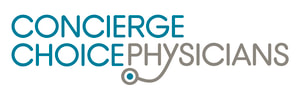D.C. Geriatrician Makes the Concierge Choice:
Quality care delivered with compassion and convenience
|
Senior patients need support
“At this time in my life, being older and all, my concierge membership has been the best thing for me.” This is a typical comment from the patients in Dr. Michael Grady’s Concierge Choice Physicians program. As a prominent geriatrician with a private practice in Washington, D.C., Dr. Grady and his staff had been serving an aging population in a changing, challenging healthcare marketplace that isn’t always senior-friendly. As the pressure on his practice and his staff continued to increase, he knew he had to explore options that would support his practice and their most vulnerable patients. That’s why in 2010, Dr. Grady launched a “Concierge Choice” program, an optional membership program that patients could choose to join should they wish to have more time with Dr. Grady, enhanced advocacy to help them navigate and coordinate all their healthcare providers, and 24-hour support, among other benefits. The program is available for an annual fee that is paid privately by the patient. It is not covered by Medicare or insurance plans. “It takes time to understand my patients’ needs, especially for patients facing multiple chronic health conditions, and those seeing other specialists.” says Dr. Grady. “My concierge program gives me the cushion I need to take that extra time.” For Dr. Grady’s patients, being a member means peace of mind, not just for themselves, but also for their adult children who are often living far away and managing the care of their parents in addition to their own families and careers. “The program gives my patients confidence knowing someone they trust is looking after their health, someone who knows their lifestyle and their history and will be there for them should they fall ill over the weekend, if they are traveling, or even if they get admitted to the hospital.” This is the high-touch, deeply personal care that is the work of all geriatricians, but the kind of care that is threatened when Medicare cuts reimbursement rates or develops new schemes that, ultimately, end in reduced payments to physicians who care for some of the nation’s most vulnerable citizens. Perhaps more than any other specialty in medicine, geriatricians struggle to ensure they are delivering the very best care with support and compassion, while facing oppressive overhead demands and the pressure to see more and more patients. How do concierge programs help geriatric patients and practices? With an aging baby boomer population, geriatrics is one of the most in-demand specialties in medicine, yet it is also one of the most low-paying. According to the American Geriatrics Society, the average salary for a geriatrician was nearly three-times lower than what a radiologist earns. In a society that will soon be facing incredible need, these numbers are troubling. Geriatricians need to look elsewhere for revenue to support their practices. Most physicians are familiar with the concierge medicine models that transform an entire practice, but they are often unaware that the program can be instituted in part. It’s not necessary for a physician to convert their entire practice, leaving the possibilities open to a much wider range of physicians—especially geriatricians. |
These partial programs are known as “hybrid” concierge, and typically convert just 5-10% of the patient panel. Though the numbers may seem small, they add up to significant revenue. A typical hybrid program can net an extra $100k annually, on average.
With a Hybrid Choice—the model that Dr. Grady chose—patients join if they want an enhanced practice experience. They are not required to join. The patients who do join tend to be the doctor’s most loyal patients, often those who have faced difficult health situations and who have formed a special bond with the doctor and want to maintain it. “My doctor has saved my life on several occasions. He has always been there for me when I’ve needed him,” is a comment we often hear when we survey members. These patients see the value in membership and are willing to pay the annual fee to support their doctor because they are grateful for the care the doctor has provided over the years. Other times, members are registered by their caregivers (typically spouses or adult children) who feel much more at ease knowing they can quickly reach the doctor for a check-in or concern. Strengthening practices for the long-term Dr. Grady has had his program since 2010 and, despite the unfortunate passing of members over time, his program has continued to grow. Today, about 10% of his patients are members of his program—a number that he finds easy to manage. He has the time to provide the extra time and support to his members, while also caring for his full patient panel. The additional revenue his Concierge Choice program earns for his practice has made the difference between selling his practice or affiliating with a larger group. He values his independence and his private practice, and wants to keep in control. “I no longer have to think about selling my practice or doing something like dropping insurance plans or Medicare. I know that I can count on my additional income that I get from my program, and my patients know they can count on me. I feel fortunate to be able to offer this.” LEARN MORE: Geriatricians who are facing financial pressure on their practices as well as the pressure to see more and more patients should explore whether a partial or full Concierge Choice model could be the solution for them. Contact (877) 777-6625, email [email protected], or visit www.choice.md for more information. |



